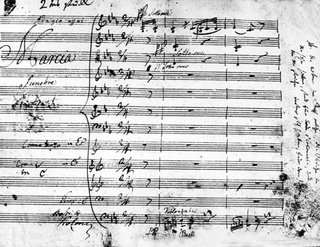 In the afterword to Revenge, Stephen Fry discusses how the author, upon the arrival of the new book, is asked the only questions that matter to the reader:
In the afterword to Revenge, Stephen Fry discusses how the author, upon the arrival of the new book, is asked the only questions that matter to the reader:"Do you write in longhand or on a computer?" If longhand: "Pencil, ballpoint, or old-fashioned ink pen?" If computer: "PC or Mac? Which font do you prefer?" No doubt if you were to reveal that you dictated your work, there would come a fresh slew of questions: "Into a machine or to a secretary?" "Sony or Panasonic?" "Male or Female?"
I'm guilty of this as well, having read in his blog with some delight of his Mac addiction, and I've faced myself this desire for knowledge of the process, the software used, whether one improvises, writes at the piano or on the plane, what you read or listen to, the view out the window while you were writing or composing or painting, the current boyfriend or girlfriend, the day job, the music paper, the scratching out and revising or the acceptance of the first draft. Is it, as Fry suggests, the questioner's desire to find the secret the getting that one novel or symphony or film that everyone has in them out into the world? If one just had the right pen or automatic screenplay formatting program or instrument library, the 36 weeks of gestation would suddenly be up and the great work would appear? I think that, for me, as a creatrix myself, it may be a desire to be normal, to know how to behave, to find the correct religion of artistic production, like the endless letters to sex columnists that start with a confession about one's particular kink, and end by asking whether this is OK, natural, normal but please not ordinary.
My fellow blogger Amy Crehore has been covering the production of one of her new paintings step by step and I have been thinking of doing the same for the new opera, but she can easily take a snapshot of her work and I'm not sure the parallel for music. I believe her motivation really is pedagogic, and I'm not sure of mine and I'm not sure it would be helpful to anyone. But some have complained about the disaster awaiting graduate students of the future due to the computerized lack of compositional notebooks and drafts and tearstained letters to scrutinize, e.g. this lovely examination of fingering in Stravinsky, so maybe we owe it to the future to make the attempt to leave behind a trail of crumbs. And that should be it, I think, just the trail and not the self-examination. On the Kalvos and Damien site, Jacques Baihé has a beautiful rant which captures the compositional process in detail and I quote:
When I write, I sit at the keyboard and hit the keys. If it sounds good, I write it down. Then I go back to make it better -- brilliant even -- and inevitably make a horrid, inscrutable mess. Can’t remember why I ever thought these plinks and diddles and screeching would ever make a piece of music. It’s late at night, yet again, so I keep tinkering. Kids are asleep, wife gave up on me long ago, so they don’t mind. I scribble and hum to myself, and try to remember important clues to the mystery of music I stored away while reading Rameau, Piston, Berlioz, and other wizards. I guess I don’t read accurately cause when I do what I remember they said it sounds absolutely awful. "Place the sixth tone over the ninth and balance two horns in F with obligations of contrabass." Something like that, but it never works, and they never tell me how to get this fizz sound I’m after.





No comments:
Post a Comment